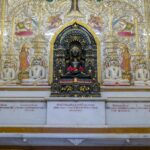The Lucknow Zoo Museum, situated within the Nawab Wajid Ali Shah Zoological Garden, provides an insight into India’s natural history and cultural heritage. Established in 1969, this museum boasts an impressive array of taxidermy, rare fossils, ancient coins, and artefacts that showcase India’s wildlife and historical evolution. Key highlights include life-sized animal dioramas, a section dedicated to rare avian species, and artefacts that trace Lucknow’s rich past. Ideal for educational visits and family outings, the museum offers an enriching experience for all age groups. However, it is particularly captivating for younger audiences. Discover the wonders of Lucknow’s legacy at the zoo museums and plan your visit today.
Lucknow Zoo Museum Location
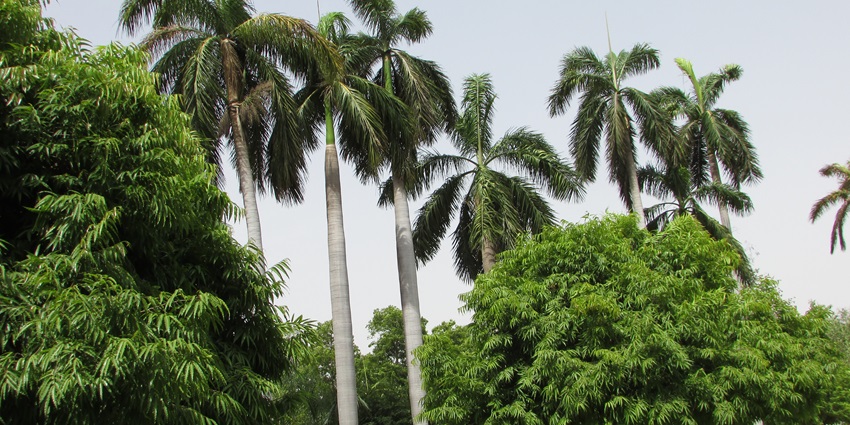
Photo: Sumit Kumar Singh 880 / Wikimedia Commons
The Lucknow Zoo Museum is located in the centre of the city, which makes its accessibility convenient from numerous prominent areas in the town of Lucknow. For instance, Hazratganj is merely a brief 2 km drive away, thus serving as a convenient stop for both shoppers and sightseers. Those travelling from Indira Nagar, located about 10 km distant, can estimate a drive of about 25 minutes, although this may vary depending on traffic conditions. Furthermore, visitors from Gomti Nagar can reach the zoo museum within a 20-minute drive, approximately 7 km.
Suggested Read: Places To Visit In Naimisharanya For A Scenic Retreat
How To Reach The Lucknow Zoo
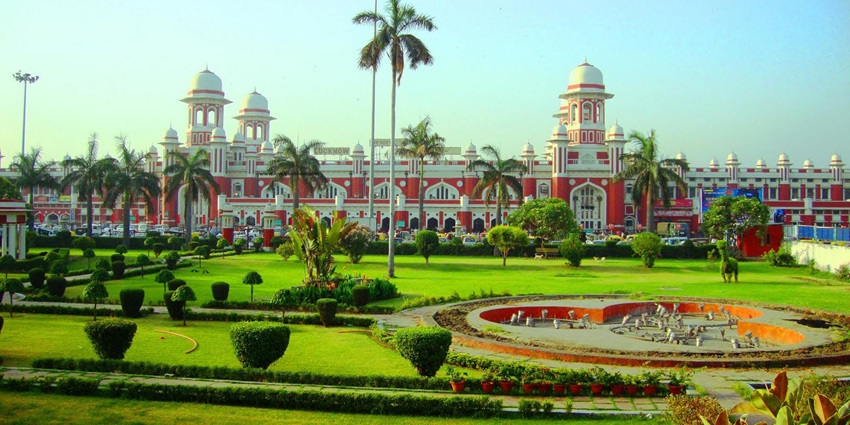
Photo: Mohit / Wikimedia Commons
The Lucknow Zoo Museum is remarkably accessible via various modes of transportation. This convenience makes it an appealing destination for visitors.
By Train: The Charbagh Railway Station is the closest, approximately 4 km away, and facilitates easy access via autorickshaws, taxis, or city buses. Alternatively, there is the Aishbagh Railway Station, located about 6 km away, which is also reachable by road transport options such as rickshaws and buses, taking around 15 minutes.
By Air: Visitors arriving by plane will land at Chaudhary Charan Singh International Airport, situated roughly 14 km from the museum. From the airport, taxis and app-based cabs are readily available, providing a seamless 30-minute drive through well-maintained roads leading into the city centre. However, because of traffic patterns, the actual travel time may vary.
By Road: Lucknow’s road network is efficient and well-maintained. The museum can be reached via major city roads, such as Mahatma Gandhi Marg and Ashok Marg, which link it to nearby neighbourhoods. Buses from various parts of the city, along with taxis and rickshaws, are readily available. This makes road travel convenient for both locals and tourists.
Places To Visit Near Lucknow Zoo Museum
Explore the five essential attractions that you must visit near the Lucknow Zoo Museum. Each of these sites provides a distinct insight into the city’s rich history, culture, and vibrant atmosphere.
1. Hazratganj Market
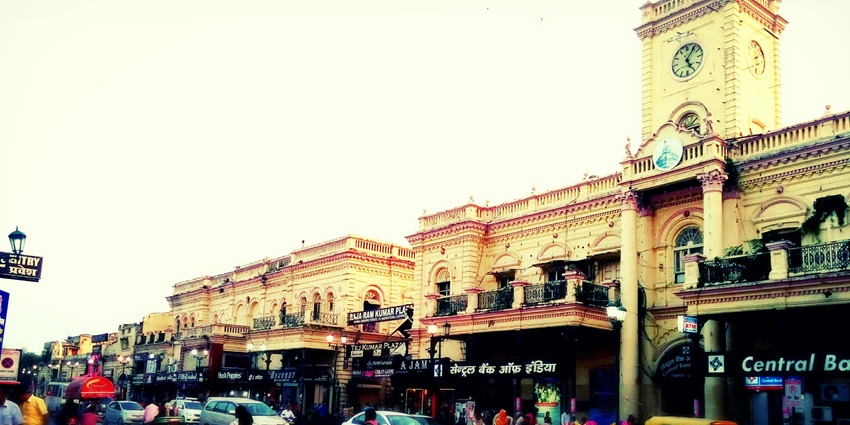
Photo: Mohit / Wikimedia Commons
Hazratganj Market is a historic shopping district in Lucknow, having preserved its charm and cultural relevance for over a century. Situated merely 2 km from the Lucknow Zoo Museum, it was originally established during British rule in the early 1800s. Hazratganj has evolved over time, seamlessly blending old-world charm with contemporary retail outlets, thus becoming a preferred shopping destination for both locals and tourists. Here, visitors can discover traditional Lucknowi chikankari garments, various handicrafts, jewellery, and exquisite perfumes. The market is also crowded with numerous cafes, local eateries, and street vendors offering classic Lucknowi snacks such as kebabs and chaats.
Timings: 10 AM – 9 PM (closed on Sundays)
Entry Fee: Free
Suggested Read: The Wonder Of Kanpur Zoo
2. Bara Imambara
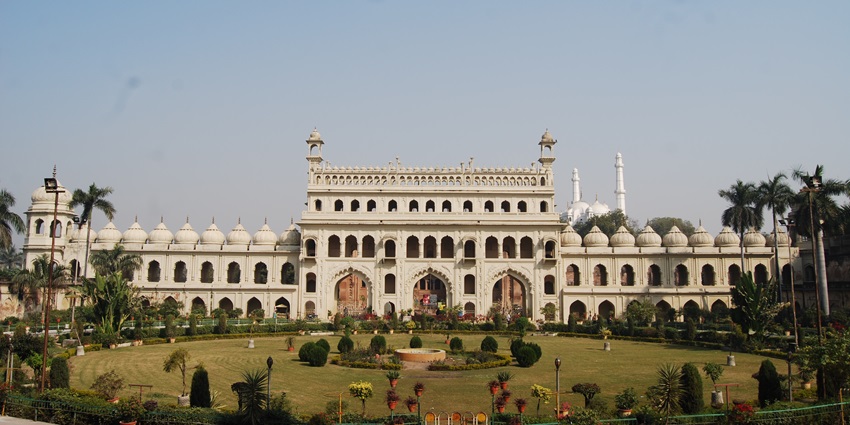
Photo: Atis Basak / Wikimedia Commons
Bara Imambara, situated roughly 4 km from the zoo, is a significant architectural landmark constructed by Nawab Asaf-ud-Daula in 1784. The main hall of the Imambara is considered a marvel of Mughal architecture, renowned for its massive arched roof, which was erected without support or columns. This unique construction technique has made it one of the largest unsupported structures globally. Inside the complex, visitors can explore the fascinating Bhulbhulaiya, or labyrinth, featuring a network of narrow, maze-like passages. The site also encompasses the Asfi Mosque and Shahi Baoli, a stepwell that served as a water reservoir for the Imambara.
Timings: 6 AM – 5 PM
Entry Fee: Rs 50 for Indians and for foreigners INR 500
3. British Residency
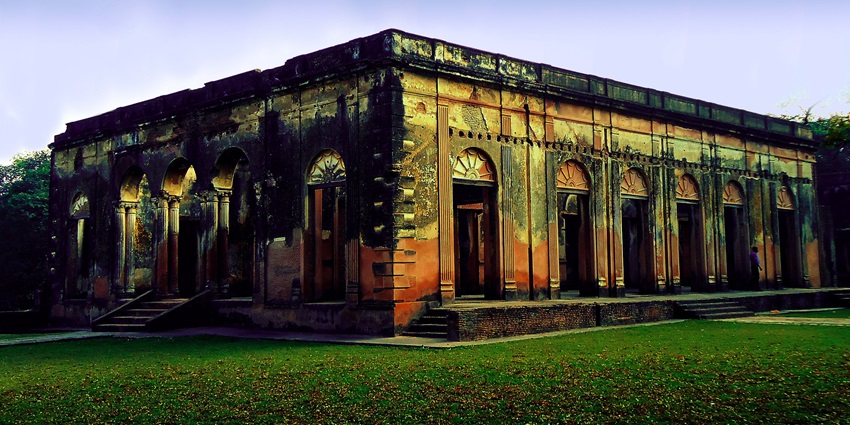
Photo: Get2himanshu / Wikimedia Commons
The British Residency, located approximately 5 km from the Lucknow Zoo Museum, is another historically significant landmark linked to the Indian Rebellion of 1857. Once serving as a stronghold and headquarters for British officials. Today, this complex remains a partially ruined monument, preserving the vestiges of British colonial architecture. It showcases buildings in various states of preservation, a cemetery where British soldiers and civilians from the uprising are interred, and a small museum that highlights relics and narratives from that era. Visitors can explore the grounds, which are shaded by ancient trees and encircled by maintained lawns.
Timings: 10 AM – 5 PM
Entry Fee: INR 15 for Indians, and for foreigners, the cost is INR 200
Suggested Read: Places To Visit In Govardhan For A Spiritual Expedition In Uttar Pradesh
4. Rumi Darwaza
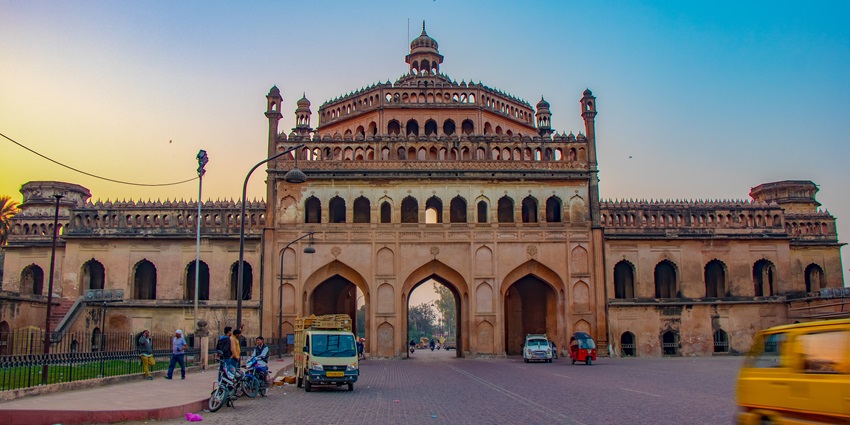
Photo: Aryanmathurphotography / Wikimedia Commons
Rumi Darwaza, commonly referred to as the Turkish Gate, is approximately 3 km from the Lucknow Zoo Museum. Constructed in 1784 by Nawab Asaf-ud-Daula, it was designed to employ the local population during a severe famine. Standing at a height of 60 feet, this gateway exemplifies the Indo-Islamic architectural style, drawing inspiration from the magnificent gates of Constantinople. Due to this, it has garnered the nickname “Turkish Gate.” Rumi Darwaza features a unique design, characterised by an arched entrance, slender windows, and a dome atop, which makes it a central element in the Old City area.
Timings: Open 24 hours
Entry Fee: Free
5. Janeshwar Mishra Park
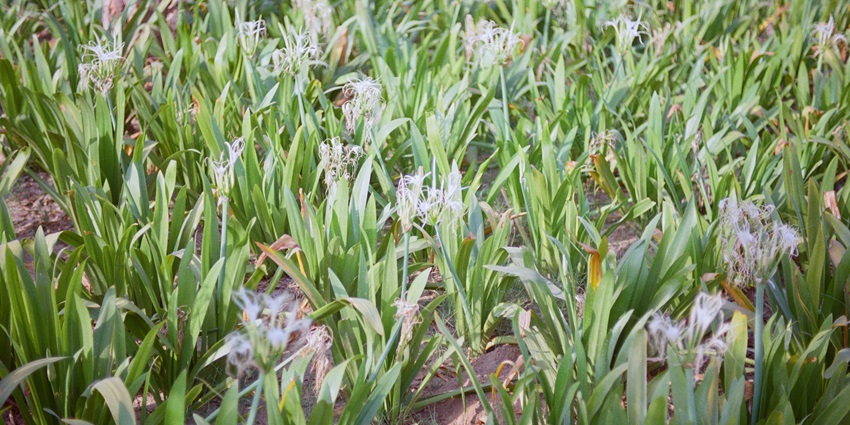
Photo: Veera.sj / Wikimedia Commons
Janeshwar Mishra Park, situated 6 km from the Lucknow Zoo Museum, is one of Asia’s largest parks, encompassing over 370 acres in Gomti Nagar. This park offers an eco-friendly recreational space and features artificial lakes where visitors can partake in boating, as well as lawns, cycling paths, and jogging trails. The park has designated areas for children’s play, which makes it ideal for family outings. Additionally, there are sculptures, an amphitheatre, and spaces for community gatherings. Designed with sustainability in mind, Janeshwar Mishra Park incorporates native trees and water bodies that contribute to maintaining the ecological balance in the area.
Timings: 5 AM – 9 PM
Entry Fee: Free
Suggested Read: Things To Do In Saharanpur For A Distinctive Experience
Where To Stay
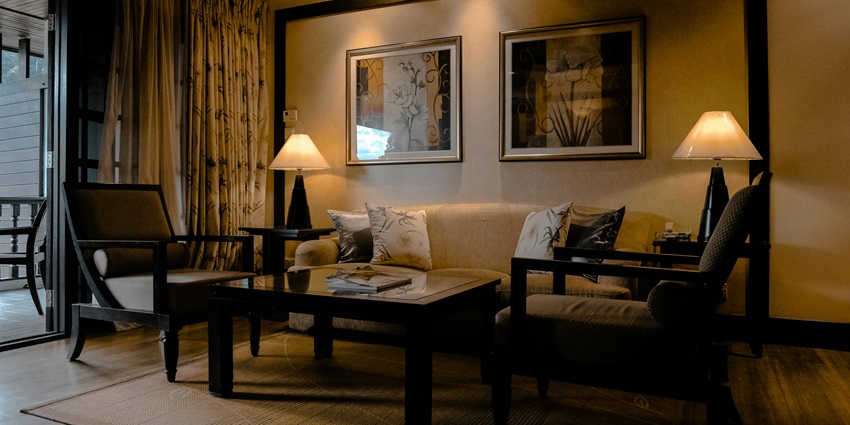
Photo: Donald Tong / Pexels / Image For Representation Only
A range of accommodations in proximity to the Lucknow Zoo Museum cater to various budgets and preferences. Clarks Avadh provides opulent rooms equipped with modern amenities. Thus, it is ideal for travellers who seek comfort and elegance. On the other hand, Ginger Hotel Lucknow offers a budget-friendly alternative, featuring clean, contemporary rooms and basic facilities at reasonable rates. La Place Sarovar Portico stands as a mid-range option, situated near Hazratganj, which provides both convenience and value because of its easy access to the zoo and city attractions.
Where To Eat
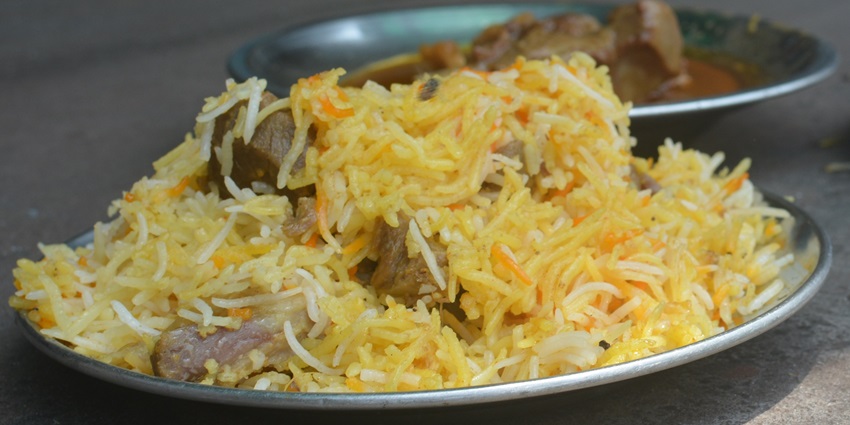
Photo: Pranaykuma12 / Wikimedia Commons
Visitors to the Lucknow Zoo Museum can discover a variety of dining options in close proximity that highlight the city’s rich cuisine. Just a short distance from the zoo, one can find Royal Cafe, located in Hazratganj, famous for its chaat and Mughlai dishes, which are perfect for a quick bite. For those seeking a full traditional Awadhi meal, Tunday Kababi offers delicious kebabs and biryanis, which are ideal for a more immersive local experience. Additionally, Moti Mahal Restaurant provides North Indian cuisine in a relaxed, family-friendly atmosphere.
Suggested Read: Hastinapur Wildlife Sanctuary
Best Time To Visit
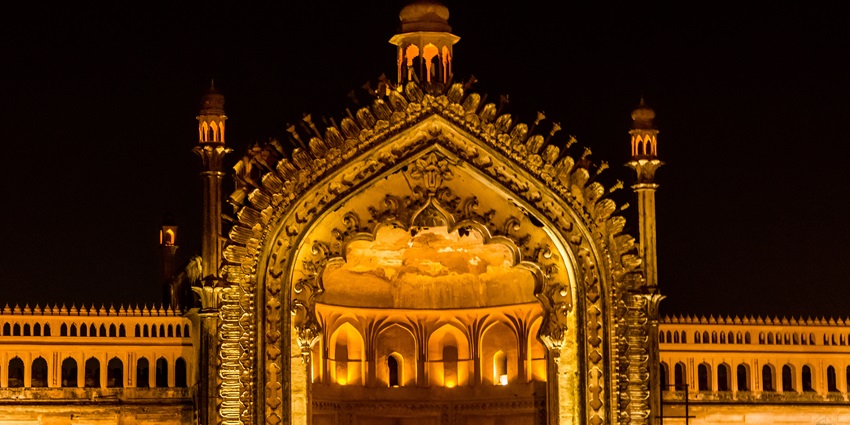
Photo: Mrityunjaipathak / Wikimedia Commons
The best time for a visit to the Lucknow Zoo Museum is during the cooler months, specifically between October and March. During this timeframe, temperatures vary between 10°C and 25°C. Thus, it is quite pleasant for outdoor activities and for exploring the exhibits without significant discomfort. However, winter weekends bring cultural festivals throughout Lucknow, which enhances the travel experience.
Other Factors To Consider
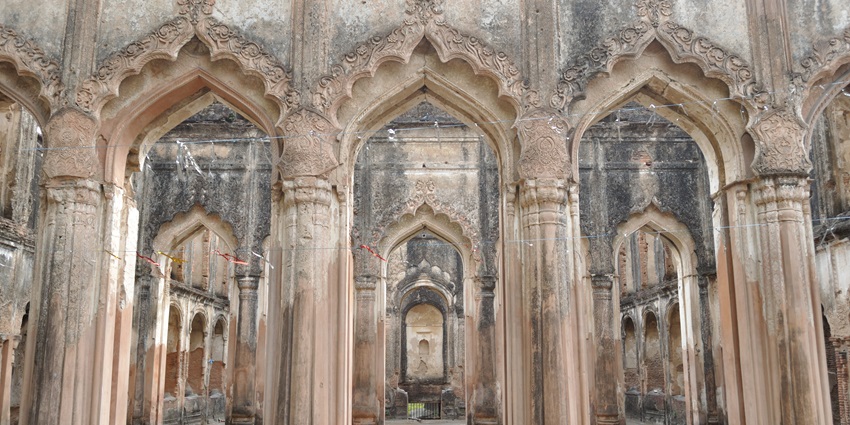
Photo: Dey.Sandip / Wikimedia Commons
In addition to selecting the optimal dining and lodging options, a visit to the Lucknow Zoo Museum also depends upon effective budgeting and strategic planning.
Average Cost Of The Trip
An average trip cost to the Lucknow Zoo Museum includes meals and some light shopping, which generally incurs a cost of approximately ₹700–₹1,500 per individual. The entry tickets remain quite reasonable. They are usually priced below ₹100 for adults and even lower for children, with added fees applicable for special exhibits or a toy train ride. The cost of meals at local eateries can vary, ranging from₹250 for affordable options to₹1,000 for a complete Awadhi culinary experience. Accommodations also vary significantly with a budget of ₹1,000 per night, while luxury options may escalate to ₹5,000.
Tips For Travellers
- It is advisable to arrive early; this allows you to enjoy cooler temperatures and avoid the crowds.
- Additionally, carrying water bottles is important as the visit to the museum can be lengthy.
- Rent a guide or an audio tour for a more comprehensive understanding of the museum’s history.
- Bring binoculars to view distant animals and observe the finer details within the museum.
- Capture the photos at Lucknow Zoo Museum in the morning for the best natural lighting.
Suggested Read: Exploring Khereshwar Temple
The Lucknow Zoo Museum is a gem for both wildlife and history, offering an enriching escape into India’s natural and cultural heritage. Thoughtful planning is crucial; with the right tips, your visit can be both memorable and smooth. Uncover additional hidden gems and experience a seamless booking process with TripXL. It is your portal to an unforgettable adventure in Lucknow.
Cover Photo: Prachi Srivastava / Wikimedia Commons


 WhatsApp
WhatsApp
 Twitter
Twitter


